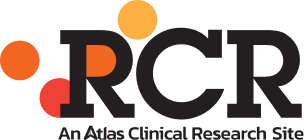FAQs
- Age
- Gender
- Type and stage of a disease
- Previous treatment history
- Other medical conditions
- Check the participant’s health at the beginning of the trial
- Provide specific instructions for participating in the trial
- Monitor the participant closely during the trial
- Stay in touch after the trial is completed
- Play an active role in personal healthcare
- Gain access to new treatments before they are widely available
- Contribute to medical research that may help others
- Possible unpleasant side effects
- Treatment may not be effective
- The protocol may require more time and attention than standard treatments, including additional trips to the study site, more treatments, hospital stays, or complex dosage requirements
- What is the study’s purpose, and why is the new treatment being tested?
- Who will participate in the study, and what tests and treatments are involved?
- How do the risks and benefits compare with current treatment, and how might the trial affect daily life?
- How long will the trial last, and will hospitalization be required?
- Who will pay for the treatment, and will expenses be reimbursed?
- What type of long-term follow-up care is included, and how will treatment effectiveness be assessed?
- Who will oversee the participant’s care throughout the trial?
- Plan and write down possible questions
- Bring a friend or relative for support
- Consider recording the discussion for later review
- Treatment trials: Test new treatments or new combinations of drugs.
- Prevention trials: Seek ways to prevent disease in people without it or prevent recurrence.
- Diagnostic trials: Find better tests or procedures for diagnosing diseases.
- Screening trials: Test methods for detecting diseases or conditions.
- Quality of Life trials (Supportive Care trials): Explore ways to improve comfort and quality of life for individuals with chronic illnesses.
PATIENT FORMS
Biometric Screening
Uber Health
Biometric Screening
A biometric screening is a quick procedure performed to obtain data on your current health
level statistics, or biometrics. At Rochester Clinical Research and RCR Buffalo, each
biometric screening is performed by one of our certified medical professionals and
normally takes less than 15 minutes. Through a sample blood droplet, your results are
available in minutes.
Each screening consists of an assessment of your biometrics and can include:
- Height and weight
- Body mass index
- Glucose level (A1C)
- Blood pressure
- HDL/LDL and total cholesterol (lipid profile)
- Fibroscan (optional/additional test for NASH/NAFL) an excellent solution for a noninvasive
evaluation of your liver.
- By knowing your numbers, you will be able to assess your current level of well-being. By becoming aware of your current biometric indicators, you can begin or continue to live a healthy lifestyle.
- Insurance companies and employers often provide an incentive for individuals to undergo a biometric screening. The data received at your visit can be transferred to your provider to potentially arrange for an insurance discount or rebate. Some companies offer up to $300 annually for employees to undergo a biometric screening. However, it’s best if you check your insurance plan to be sure.
- Many companies use accumulated biometric screening data to guide corporate wellness programs and work environments. Your information can help create a better work atmosphere for both you and your employer.
- You will be greeted by our administrative staff upon arrival.
- Initial screening by a research assistant in a designated room.
- Quick blood test from a finger prick to start the screening.
- Measurement of height, weight, and body mass index, completed in under five minutes.
- Discussion with our nurse practitioner to address any questions about your results.
- Option to send results to your doctor and keep a copy for future reference with your permission.
At any time, we are happy to field questions or concerns on biometric screenings. To
inquire about scheduling an appointment, please call us at 585-288-0890 in Rochester or
716-415-8380 in Buffalo.
To determine if there is an incentive available for you to undergo a screening, we
recommend that you contact your employer or insurer. Your insurance provider may have
paperwork relating to their Wellness program that you may need to bring to our office.
Partner with Atlas Clinical Research
Unlock the potential of your clinical trials with our expert team and cutting-edge facilities. Leverage our site network to drive your research to success with our patient-centric approach and comprehensive support.
PATIENT FORMS
Patient Reported Medical History
Pediatric Patient Reported Medical History
Uber Health
Getting to Your Appointment Just Got Easier with Uber Health!
How It Works:
-
Let Us Know You Need a Ride
1.When scheduling your appointment with Rochester Clinical Research or RCR Buffalo, simply inform us that you require transportation.
-
Receive Your Ride Details
2.- If you have a cell phone, you will receive a text message with your ride details at the time of booking.
- If you do not have a cell phone, we will provide you with the necessary scheduling information directly.
-
Ride Notifications
3.When your car is on its way, you will receive another text or call (to your cell phone or landline) notifying you that your ride is en route.
-
Enjoy the Ride
4.The car will take you to Rochester Clinical Research/ RCR Buffalo for your appointment.
-
Return Trip
5.At the end of your appointment, we will arrange for a ride to take you back home.
